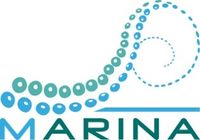MARINA: Difference between revisions
| Line 70: | Line 70: | ||
*[[Media:M_WP3_Final_Draft_Int_MML_W_Report_2017_Template_R1_Smartbay.pdf|MARINA Galway MML Report]] | *[[Media:M_WP3_Final_Draft_Int_MML_W_Report_2017_Template_R1_Smartbay.pdf|MARINA Galway MML Report]] | ||
*[[Media:M_WP3_MML_W_Report_2018_R2_ahhaa4.pdf|MARINA Tallinn MML Report]] | *[[Media:M_WP3_MML_W_Report_2018_R2_ahhaa4.pdf|MARINA Tallinn MML Report]] | ||
* | *[http://www.futureworlds.eu/w/1/c/ca/MARINA_Local_MML_Nicosia_2018_Final.pdf|Nicosia 2nd Local Mobilisation and Mutual Learning (MML) Workshop] | ||
==References== | ==References== | ||
Revision as of 00:48, 21 August 2018
The Marina proposal overall aim is to create an all-inclusive Knowledge Sharing Platform (KSP) catalysing and organising the convergence of already existing networks, communities, on-line platforms and services providing an online socio-technical environment that facilitates and stimulates the direct engagement of researchers, Civil Society Organisations (CSOs), citizens, industry stakeholders, policy and decision makers, research funders and communicators for improving Responsible Research and Innovation (RRI). The involvement of the Cyprus Neuroscience and Technology Institute (CNTI) in the project is twofold; on the one hand, it is responsible of facilitating the implementation of two national and eight international Mobilisation and Mutual Learning (MML) Workshops by employing the methodology of the Structured Democratic Dialogue while on the other hand, its task relate to the development of a MARINA PEDIA according to the standards and principles of the Wikipedia.
Mobilisation and Mutual Learning Workshops (MML)
The Mobilization and Mutual Learning (MML) workshops constitute an integral element of the MARINA project that aims at federating communities in familiarizing with and adapting Responsible Research and Innovation (RRI) in the marine sector. The MML workshops engaged multidisciplinary groups of participants including citizens, NGOs and CSOs, students, researchers, business representatives, policy makers, experts in communication and other kind of stakeholders in an attempt to identify actions and solutions towards current and emerging marine and societal challenges in the perspective of the Responsible Research and Innovation. In particular, the following eight marine challenges were addressed during the workshops:
The workshops:
- Engaged European societal actors in a multi-actor dialogue and in co-creating a participatory roadmap of actions for tackling the marine societal challenge and based on Responsible and Innovation principles;
- Started the process of federating Civil Society Organisations (CSOs), citizens, businesses, industry, research, policy-makers and communicators face-to-face and on-line;
- Set in motion inclusive mechanisms for sharing knowledge and best practice, building common understanding and co-creating solutions to marine societal challenges and based them on the principles of Responsible Research and Innovation;
- Facilitated federation of communities and networks on the MARINA digital platform.
MML workshops and Sustainable Development Goals
The European Union’s response to the 2030 agenda of the United Nations Organisation is “The new European consensus on development of ‘our world, our dignity, our future” [1]. The document highlights that “the EU and its Member States will integrate the respect of human rights, democracy, the rule of law and gender equality into their political dialogue” and that “sustainable development requires a holistic and cross-sector policy approach and is ultimately an issue of governance which needs to be pursued in partnership with all stakeholders and on all levels” . Accordingly, the topics addressed at the MARINA workshops have been related to Sustainable Development Goals such as:
- SD Goal 1: End poverty in all its forms everywhere;
- SD Goal 4: Ensure inclusive and equitable quality education and promote lifelong learning opportunities for all;
- SD Goal 6: Ensure availability and sustainable management of water and sanitation for all;
- SD Goal 7: Ensure access to affordable, reliable, sustainable and modern energy for all;
- SD Goal 8: Promote sustained, inclusive and sustainable economic growth, full and productive employment and decent work for all;
- SD Goal 9: Build resilient infrastructure, promote inclusive and sustainable industrialization and foster innovation;
- SD Goal 11: Make cities and human settlements safe, resilient and sustainable;
- SD Goal 12: Ensure sustainable consumption and production patterns;
- SD Goal 13: Take urgent action to combat climate change and its impacts;
- SD Goal 14: Conserve and sustainably use the oceans, seas and marine resources;
- SD Goal 17: Strengthen means of implementation and revitalise the global partnership for sustainable development.
SDDs
Eleven MML workshops have been implemented using the methodology of the Structured Democratic Dialogue:
- Nicosia Local Mobilisation and Mutual Learning (MML) Workshop
- Venice International Mobilisation and Mutual Learning (MML) Workshop
- Boulogne sur Mer International Mobilisation and Mutual Learning (MML) Workshop
- Copenhagen International Mobilisation and Mutual Learning (MML) Workshop
- Istanbul Mobilisation and Mutual Learning (MML) Workshop
- Galway International Mobilisation and Mutual Learning (MML) Workshop
- Nicosia 2nd Local Mobilisation and Mutual Learning (MML) Workshop
- Larnaca International Mobilisation and Mutual Learning (MML) Workshop
- Lisbon International Mobilisation and Mutual Learning (MML) Workshop
- Tallinn International Mobilisation and Mutual Learning (MML) Workshop
- Brussels International Mobilisation and Mutual Learning (MML) Workshop
- Nicosia Local Mobilisation and Mutual Learning (MML) Workshop
- MARINA Venice MML Report
- Boulogne sur Mer MML Report
- Copenhagen MML Report
- MARINA Galway MML Report
- MARINA Tallinn MML Report
- 2nd Local Mobilisation and Mutual Learning (MML) Workshop
